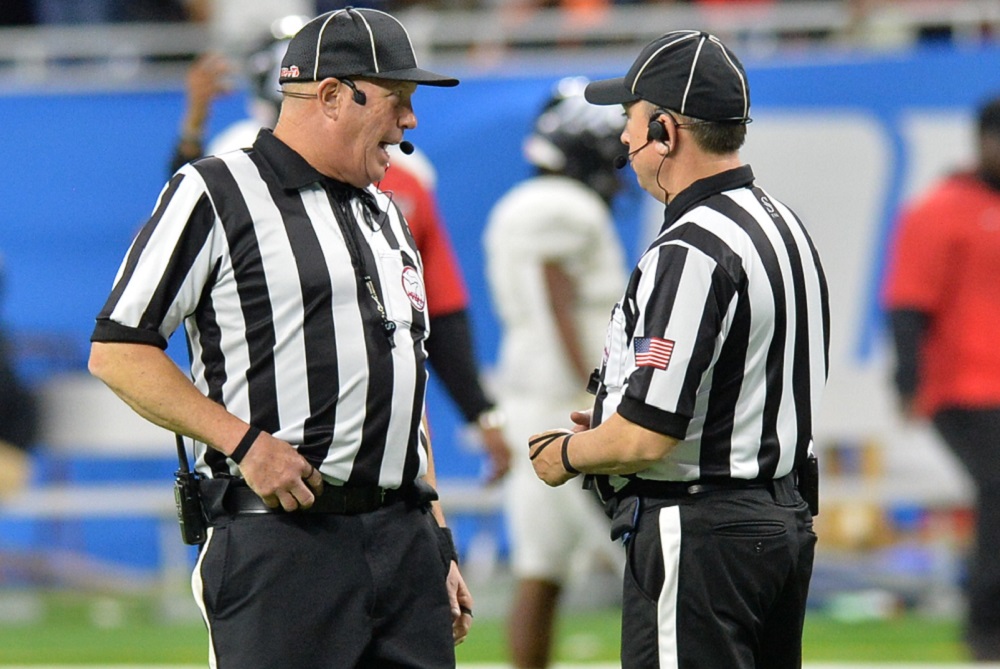
Be the Referee: What Officials Don't Do
October 11, 2018
This week, MHSAA officials coordinator Sam Davis discusses some of the things that do not fall under officials' many game-day responsibilities.
Be The Referee is a series of short messages designed to help educate people on the rules of different sports, to help them better understand the art of officiating, and to recruit officials.
Below is this week's segment – What Officials Don't Do - Listen
Game officials at all levels have a lot of responsibilities. But there are some critical things that take place at local high school games where officials don’t have the authority that some folks think they do.
Let’s start with injuries – specifically concussions. Concussion management starts and ends with the local school. If an official suspects a concussion – or any injury – all he or she can do is notify the coach of the team. The school makes the decision about whether or not a player stays in the game.
We often get calls about whether or not an official is responsible for enforcing MHSAA Handbook rules. Again, it’s up to the school, which agrees to follow and enforce the rules when joining the Association. Even if the official suspects an ineligible player is in the game, it’s not his or her role to enforce that rule. It’s all on the school.
Past editions
October 4: Always 1st-and-Goal - Listen
September 27: Unique Kickoff Option - Listen
September 20: Uncatchable Pass - Listen
September 13: Soccer Rules Change - Listen
September 6: You Make the Call: Face Guarding - Listen
August 30: 40-Second Play Clock - Listen
August 23: Football Rules Changes - Listen

Be the Referee: Intentional Grounding Change
By
Sam Davis
MHSAA Director of Officials
August 23, 2022
Be The Referee is a series of short messages designed to help educate people on the rules of different sports, to help them better understand the art of officiating, and to recruit officials.
Below is this week's segment – Intentional Grounding Change - Listen
New this year in football is a change to intentional grounding.
What’s staying the same? A quarterback in the free block zone – who throws a pass to an area with no receiver nearby – will continue to be flagged for intentional grounding. That’s a five-yard penalty and loss of down.
So what’s different? Now … a quarterback outside of the free blocking zone can legally throw the ball away as long as the pass lands past the original line of scrimmage. This used to be flagged for grounding, but is now legal.
In fact, this rule doesn’t just pertain to the quarterback. Any passer, outside of the free blocking zone, can throw the ball away as long as it lands past the line of scrimmage.

